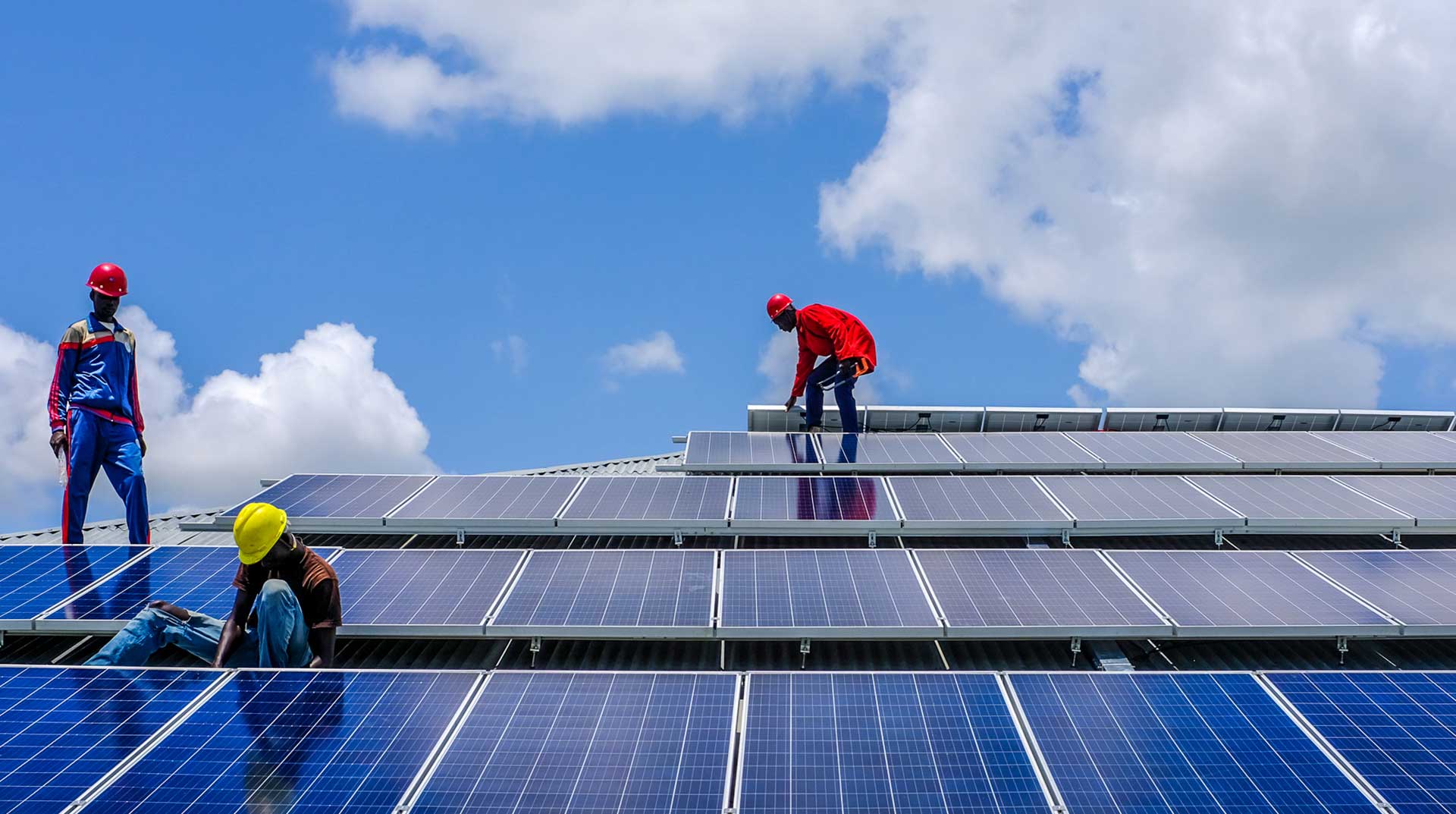United Nations Secretary General welcomed by President Filipe Nyusi in Mozambique capital city, Maputo - @Photo - UN/Eskinder Debebe
Ladies and gentlemen, journalists, thank you very much for your presence and for your attention.
For me, visiting Mozambique is a matter of the heart. I was in Mozambique in the exercise of all the official functions I had. I was here as Prime Minister of Portugal, as President of the Socialist International, as High Commissioner for Refugees and, now, as Secretary-General of the United Nations. I was always received with great friendship, great warmth. I always felt at home, I always felt among friends, I would even say, among brothers.
This visit is very special, because it is a visit to clearly express solidarity – my solidarity, but above all the solidarity of the United Nations with Mozambique, with the Mozambican people and with their government, who have been in an extremely difficult situation, with the two cyclones that have had a devastating effect on the territory of Mozambique.
And Mozambique has undeniable moral authority here, because it is now clear that these natural disasters, which happen more often, with more intensity and cause greater devastation, have a lot to do with climate change.
Despite that, Mozambique does not really contribute to global warming, but it is at the forefront of the victims of global warming.
This gives [the country] the right to demand strong solidarity and strong support from the international community, both in the response to the drama created by the storms that plagued the country and in preparing the country for the reconstruction and preparation for future situations. The United Nations has always stood with the Mozambican people, that's right, since the first moment.
The United Nations agencies considered Mozambique an absolute priority, mobilizing the best they had to be with the Mozambican people and contribute to what was a very effective mobilization of the government and the extraordinary courage of its people, an extraordinary response. I want to pay tribute to the Mozambican people and their government for the extraordinary response, in a particularly difficult situation, with immediate emergency action, deep humanitarian action, and now launching the reconstruction process with what is now called resilience, that is, the ability of communities to be armed to better withstand these catastrophes in the future.
The United Nations is, and will be, with the Mozambican people in all these phases. Naturally, asking the international community to support the people of Mozambique, and support Mozambique [to address the] scale of the problems of both response and reconstruction. The United Nations humanitarian appeal was an appeal of $280 million and was far from being fully funded. At the donor’s conference, the Mozambican state requested $3.2 billion and was promised $1.2 billion, if I recall correctly.
It is clear more will be needed. More aid and more support will be needed from the international community in Mozambique to respond effectively. And not just more support, but the swift implementation of that promised support. That is another crucial issue, regarding the solidarity of the international community. We must not only support, but support on time.
On the other hand, I would like to say that the United Nations is deeply committed to ensuring that the peace process in Mozambique succeeds. The United Nations strongly supports the dialogue between the Government and RENAMO. Having received the indication from the President of Mozambique, also confirmed by RENAMO, that the best person to continue facilitating this dialogue would be Ambassador Mirko Manzoni, I, of course, immediately put myself at the disposal of the President of Mozambique, and have appointed Ambassador Mirko Manzoni as my personal envoy, so that he may continue in his capacity as facilitator, to create, I hope, better conditions for a successful dialogue, which is a fundamental condition for the peace and stability of Mozambique. Without peace it is always difficult to have development.
On the other hand, I come from Nairobi, where we held the United Nations Conference for African Counterterrorism and Prevention of Violent Extremism and I had the opportunity to express to the President of Mozambique the total availability of our Counterterrorism and Prevention of Violent Extremism unit to collaborate, as we are doing with many African countries, with the Mozambican authorities, in particular by creating the conditions, especially among younger members of the population, to take positive action fighting extremism, fighting radicalization and not being victims of extremism or radicalization. On that, Mozambique can also count on the full support of the United Nations.
Mr. President, once again, thank you very much for your generous hospitality. You can count on the total solidarity of the United Nations and also on my total solidarity with Mozambique, at this moment of great importance for the country, to come out of the enormous difficulties caused by these terrible times, and to face the future with commitment, optimism and hope.

 Locations
Locations


















